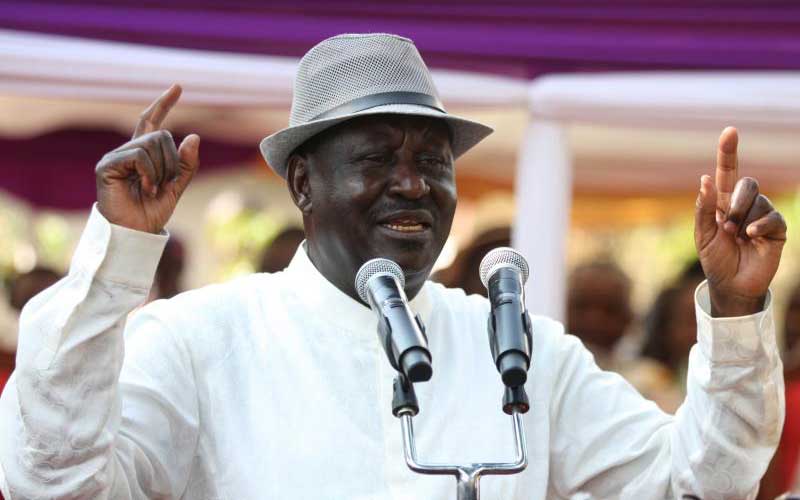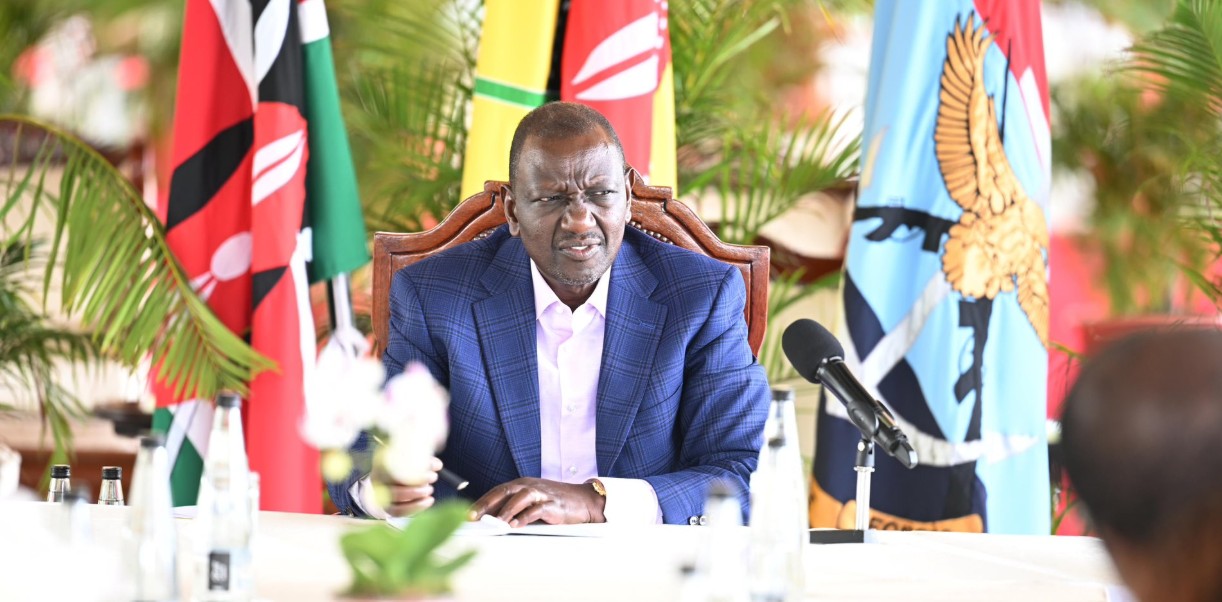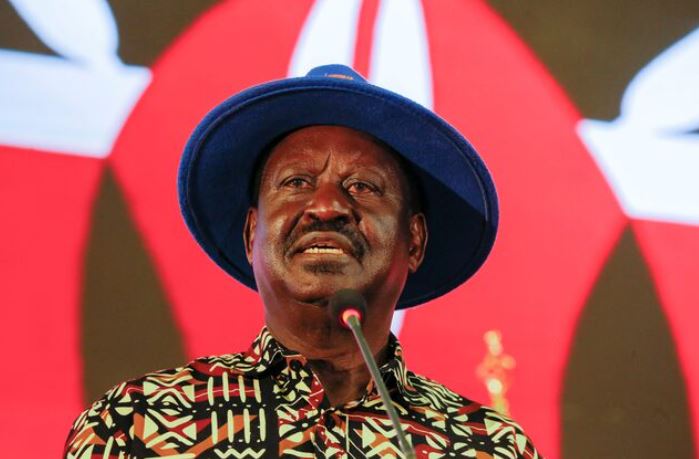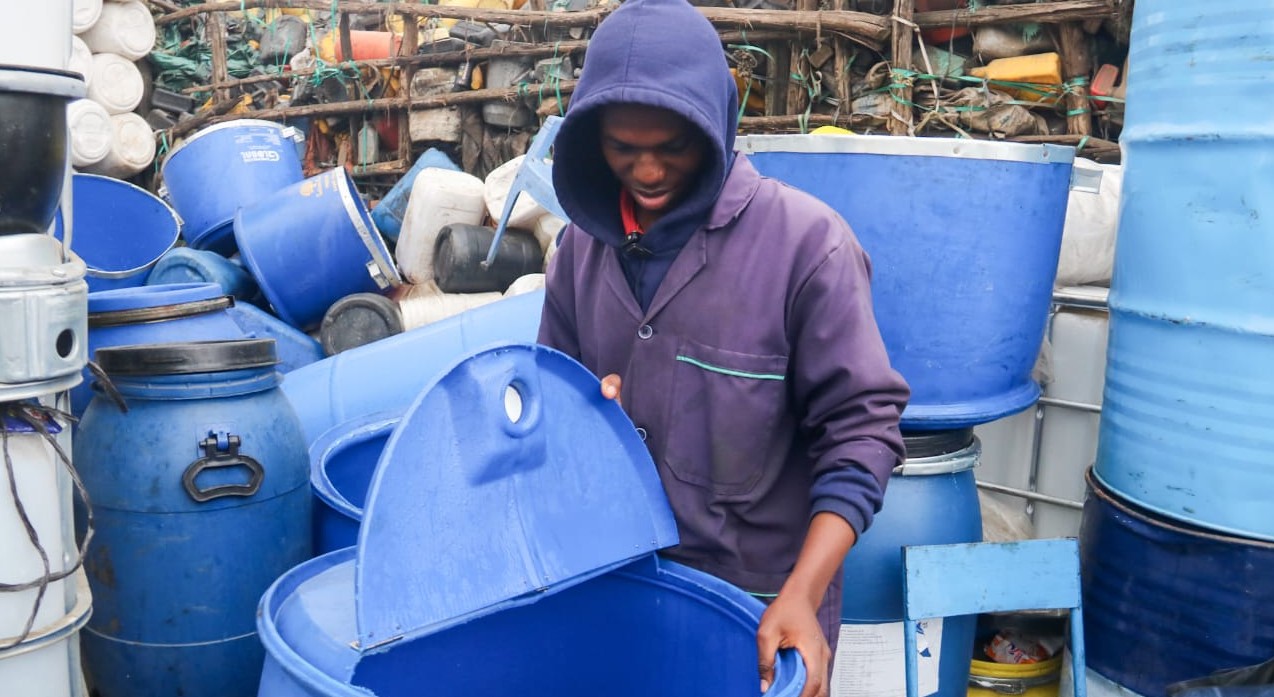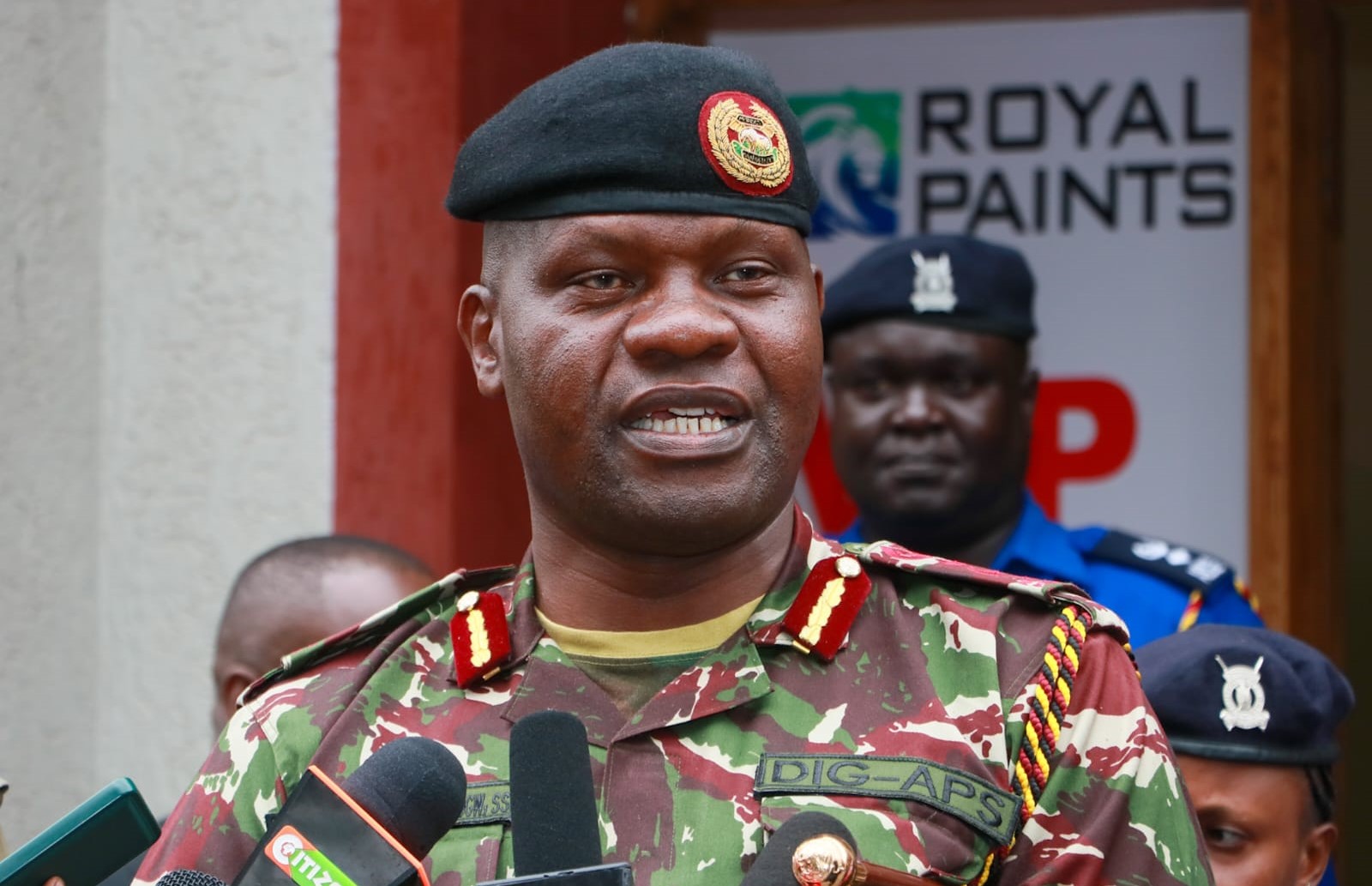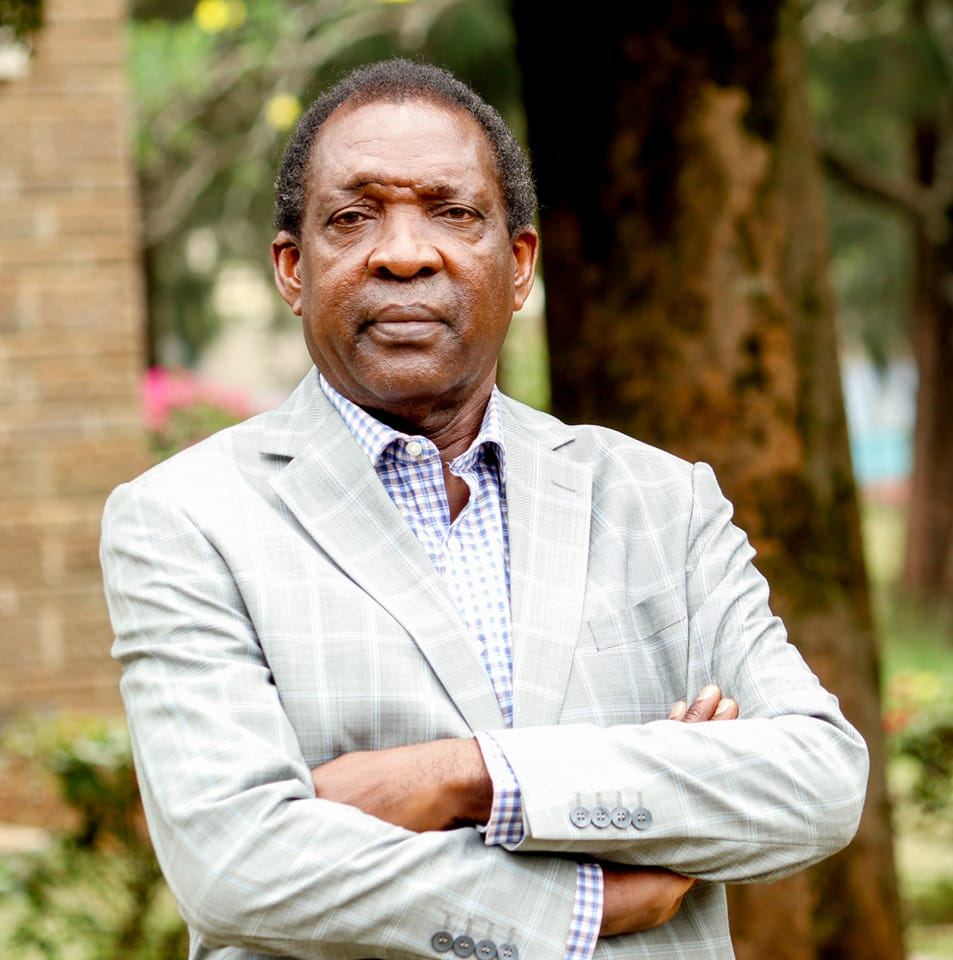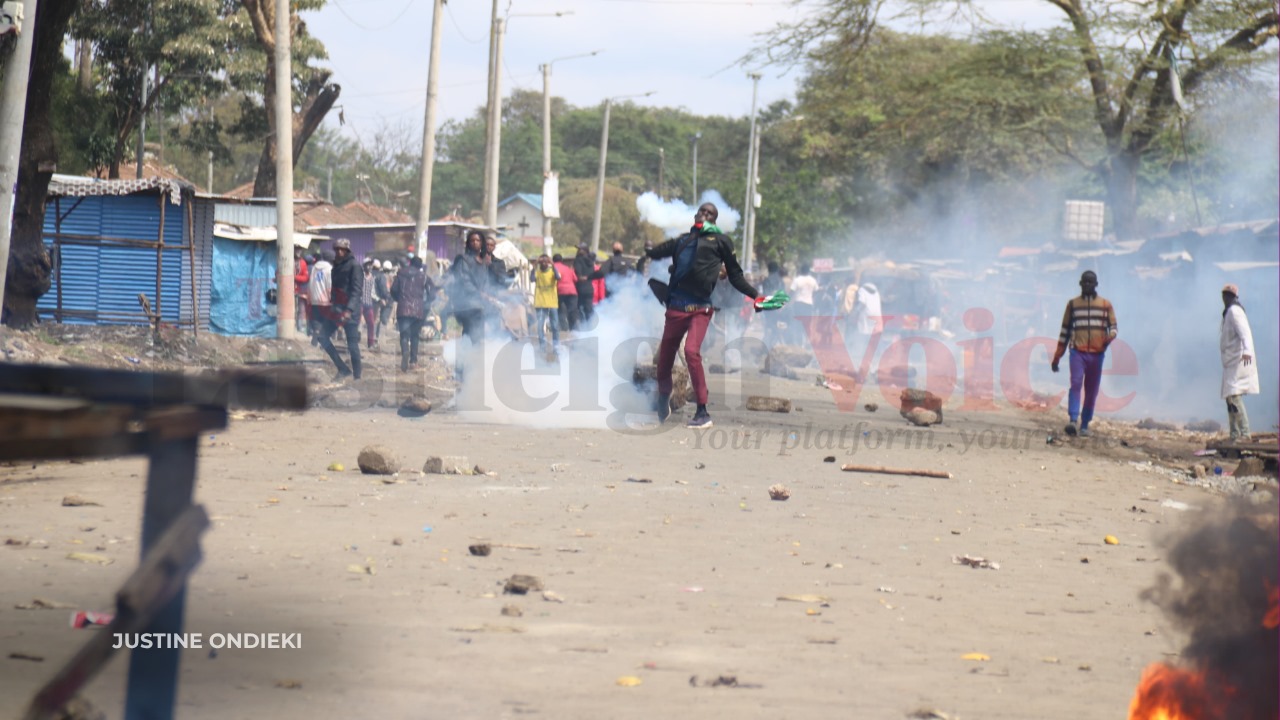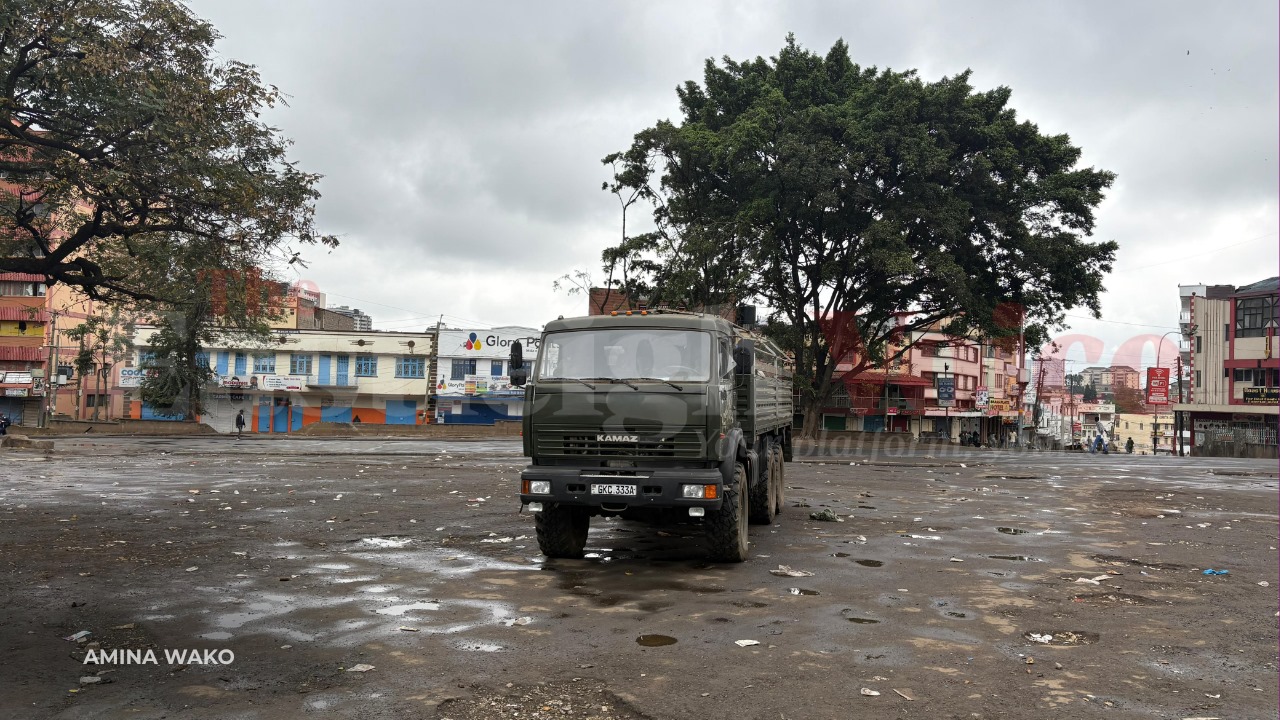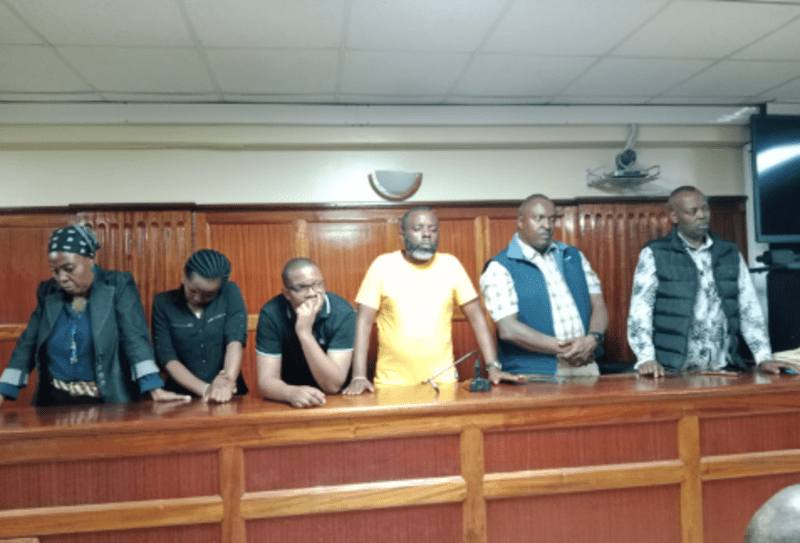We no longer trust police: Nairobi traders arm themselves to protect shops from looters

Although the government designated July 7 as a regular working day, the widespread business closures, police cordons, and scaled-down public transport painted a different picture.
As tensions escalated in Nairobi’s central business district on Monday morning, traders took matters into their own hands, arming themselves with crude weapons to safeguard their businesses amid fears of looting during the Saba Saba protests.
Early morning spot checks revealed business owners stationed outside their premises, clutching metal rods, clubs, and wooden planks in readiness.
More To Read
- Saba Saba: Raila calls for formation of ‘national conclave’ to address national grievances
- Saba Saba: Raila Odinga skips Kamukunji rally, blames police blockades
- DIG Gilbert Masengeli insists Nairobi CBD accessible despite police barricades
- Two shot in Kangemi amid Saba Saba protest chaos
- Raila to lead Saba Saba Day tributes at Kamukunji, urges reflection on democracy
- CCTV exposes how goons violently invaded KHRC offices
“We came out today as young people to guard our businesses because tomorrow, we still need to look for food,” one of the traders in downtown Nairobi said while speaking on behalf of the group.
“Those young boys who’ve been brought here to cause trouble and destroy our businesses, we’re here to stop them. We don’t know those youths. The people we know are already here.”
He added that the group had spent the night planning via WhatsApp and had arrived in the area by midnight.
“We came here at night, we organised ourselves via a WhatsApp group. We came to protect our businesses throughout the day and even at night we’ll still be here. We arrived around midnight,” he said.
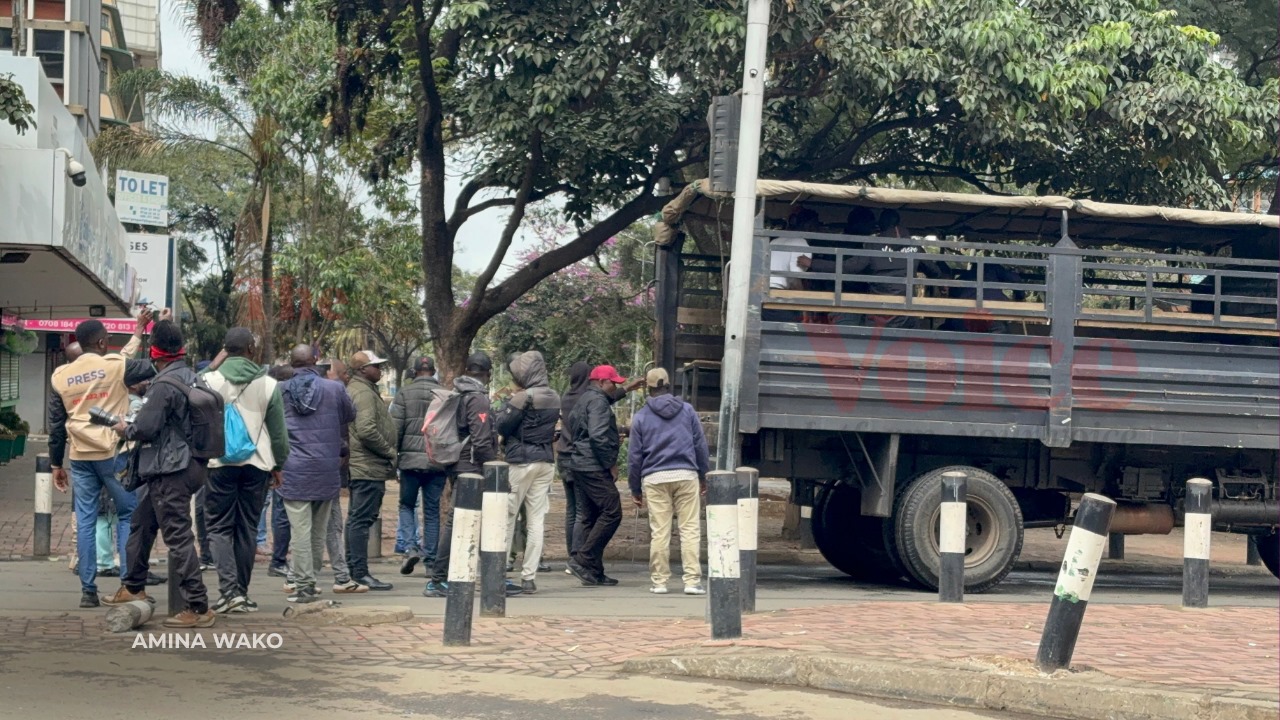 Police arrest individuals found in Nairobi CBD on July 7, 2025 as the city remained under locked on Saba Saba Day. (Photo: Amina Wako)
Police arrest individuals found in Nairobi CBD on July 7, 2025 as the city remained under locked on Saba Saba Day. (Photo: Amina Wako)
No confidence in police
He added that they no longer have confidence in the police, accusing officers of standing by as businesses are vandalised.
“At this point, we no longer trust the police because even they just stand and watch as our businesses are destroyed. That’s why I and other traders are confident enough to defend our shops ourselves,” he said.
Along Thika Road, security guards were spotted at Akai Plaza, near the Ruaraka roundabout, armed with arrows and spears ahead of the day’s protests.
In satellite towns including Mlolongo, Kitengela, Machakos, Emali, and Matuu, businesses remained largely closed as police intensified patrols.
In Mlolongo, groups of youth were seen standing in front of shops holding clubs, suggesting that traders had hired them for protection.
This isn’t the first time business owners have taken such steps during periods of national unrest.
Keeping off looters
In past anti-government protests, traders have relied on youth militias to shield their property from potential looters.
Despite the preparation, the towns remained relatively calm by mid-morning.
The Nairobi-Namanga Road was almost deserted, with only a few pedestrians braving the silence. Bodaboda operators flooded the area, seizing the opportunity to transport stranded commuters and hiking fares due to increased demand.
Along Mombasa Road, several industrial firms remained shut, and many employees stayed home. Private schools across Kajiado and Machakos counties advised parents to keep their children indoors over safety concerns.
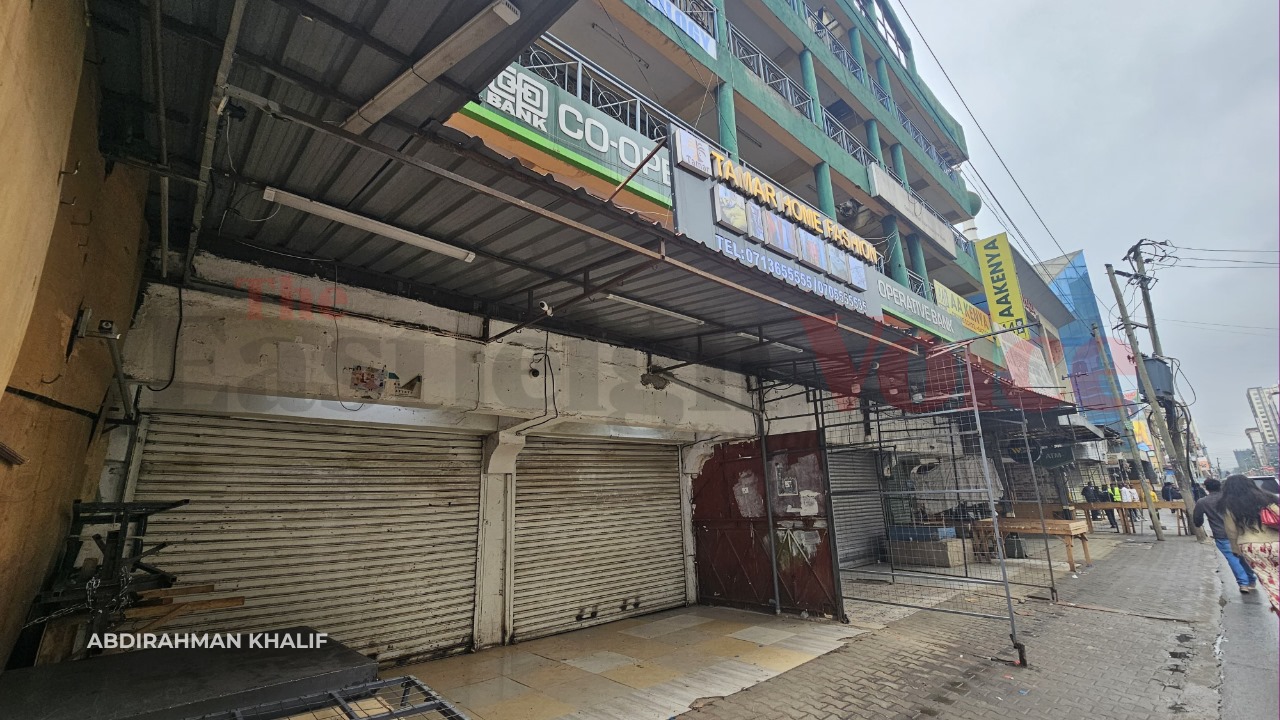 Closed shops in Eastleigh on Saba Saba Day. (Photo Abdirahman Khalif)
Closed shops in Eastleigh on Saba Saba Day. (Photo Abdirahman Khalif)
Meanwhile, the Deputy Inspector General (DIG) of the Administration Police Service, Gilbert Masengeli, sought to downplay reports of citywide lockdowns. He defended the heavy police deployment across the capital, insisting that the central business district remained open.
“Everybody is getting into the CBD, everybody is going for duty as normal, no worries,” Masengeli told journalists.
But his claims were swiftly challenged by reporters at the scene.
“That is not true. We have seen people being turned away, and there are several roadblocks,” one journalist said.
Masengeli pushed back calmly. “What have you seen?” he asked, before adding, “But you’ve been here, you’ve not been turned away, and you will not be turned away. Ours is just to urge everybody to keep peace and confine within the rule of law.”
Police barricades
Armed police erected barricades along key entry points into Nairobi’s CBD on Monday, tightening security as the city braced for Saba Saba Day protests.
Along Wayaki Way—a major artery from Westlands—officers screened vehicles and pedestrians, while similar checkpoints were manned on Valley Road, Ngong Road near City Mortuary, and Roysambu on Thika Road. Even foot traffic was not spared, with reports of pedestrians being stopped, questioned, and in some cases denied access to the city centre.
Additional surveillance points were set up along Ladhies Road, Haile Selassie Avenue, Kenyatta Avenue, and Uhuru Highway, effectively sealing off the CBD.
The heightened security coincided with the 35th anniversary of the 1990 Saba Saba protests, a defining chapter in Kenya’s push for multiparty democracy and civil liberties.
Traditionally a day of symbolic resistance, this year’s Saba Saba commemoration unfolded under a cloud of political tension and anxiety.
Recent Gen Z–led protests—particularly the June 25 demonstrations held in memory of victims from last year’s anti-Finance Bill unrest—have revived public concerns over police brutality, looting, and government accountability.
Although the government designated July 7 as a regular working day, the widespread business closures, police cordons, and scaled-down public transport painted a different picture.
Top Stories Today
